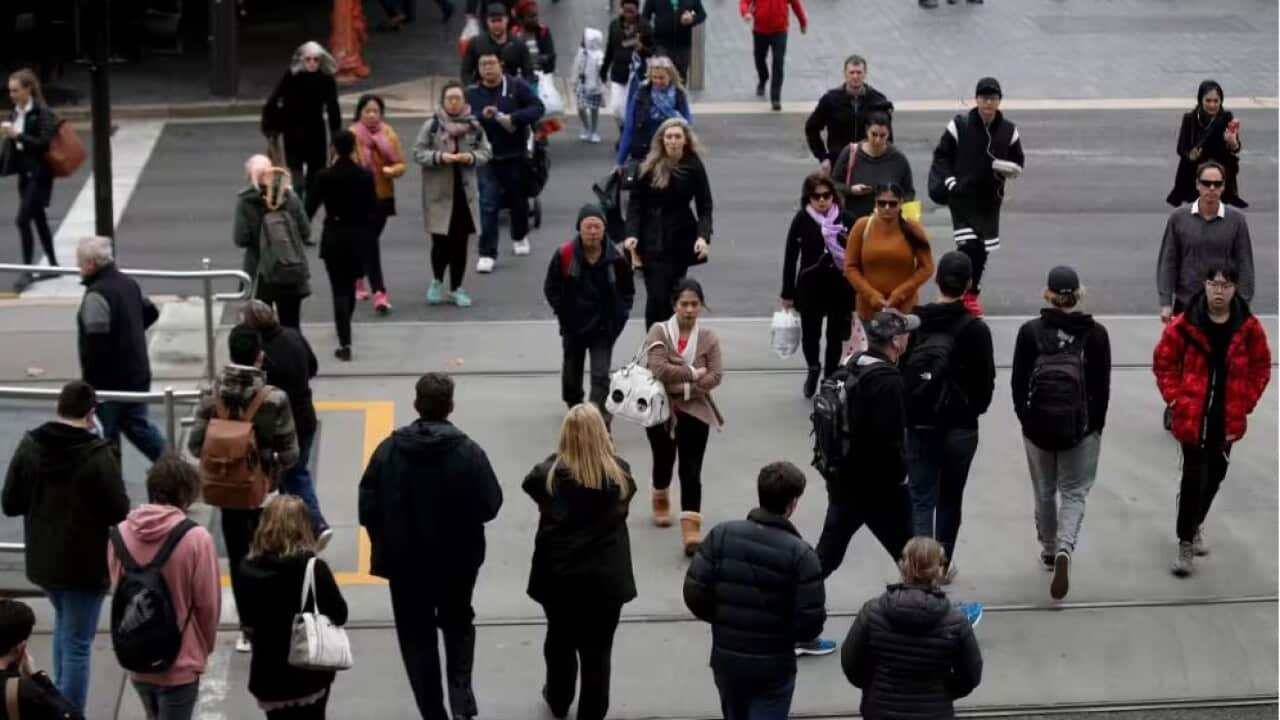TRANSCRIPT:
It seems like the buzz word of choice for politicians at the moment - social cohesion.
From a distance, you can imagine it means what it says, people getting along in a way, fitting together without any issues.
The first Australian politician to use the term was Gough Whitlam in 1972 - as he launched the Labor Party's election campaign.
Dr Hass Dellal is the executive director of the Australian Multicultural Foundation and chair of the federal government's multicultural framework review.
He says the phrase gained traction in the 90s.
"It's really from the mid 90s, the interest in the dynamics of social cohesion grew due to concerns prompted by the impact of globalisation, economic change and fears fuelled by global such as the war on terrorism. There's really no agreed definition on social cohesion, but the most current definitions are on a sense of belonging, attachment to a group, participation and shared values. It's really about embracing the social good."
There's a few earlier references to the term.
One, from the late 1800s, says it's the absence of latent social conflict, and the presence of strong social bonds.
Another interprets it as building shared values, reducing disparities, and ensuring people from different walks of life all feel like they are part of the same community.
Dr Dellal says the foundation of social cohesion is belonging.
"Identity and a sense of belonging is a fundamental aspect of the human experience, and that's the foundation of social cohesion. And and with societies like ours that are so culturally diverse, to be inclusive is so important if you want to create that level of respect, but it also it drives a nation to success."
In the mid 2000s, the Scanlon Foundation Research Institute started to measure social cohesion.
They identified five domains: worth, social justice, acceptance, belonging, and participation.
Each year they conduct a survey and produce the Scanlon Index of Social Cohesion.
CEO of the Scanlon Foundation Research Institute, Anthea Hancocks, says it is in decline.
"If you look at the overall index, it is slightly declining, but that's because we chose an arbitrary starting point. So you could argue that part of what you can see happening at the moment is the index itself calibrating."
The first report in 2007 set the index at 100.
In 2023, the overall score was 78, with the biggest areas of decline in social inclusion and justice, and acceptance and rejection.
During the pandemic, the index reached a five year high of 93.
Ms Hancocks says the government's response to the pandemic boosted the score.
"Because they put in JobKeeper and JobSeeker. And so there was instantly a sense that, okay, people recognise there's a floor, and they don't want us to go below that floor. And so there was a sense of support and a sense that the government was doing the right thing to look after the people. And it did. It absolutely shot up. People's trust in government shot up as a result of that as well. And now all of those things have disappeared, so we are back to the same place we were pre the pandemic."
For the government, concerns about social cohesion have been on the rise since October 7th.
Following increased reports of antisemitism and Islamophobia in the community, they appointed a Special Envoy for it - Peter Khalil.
Whilst global factors can impact social cohesion, Ms Hancocks says economic conditions underpin the balance.
"The main factor that influences social cohesion overall is people's sense of economic worth. So whether or not they feel like they can be optimistic about their own economic futures, and that tends to have underpin a whole lot of other things that people have reactions to."
But Australia's attitude towards multiculturalism remains positive.
"Overall, Australians views about multiculturalism have been incredibly positive for a very, very long time. And they don't shift. So 85% of the population believe multiculturalism has been good for Australia. It sits there consistently throughout."
Dr Dellal says a cohesive society isn't something you can just set and forget.
"You can't claim to be a successful multicultural nation simply because you're ethnically diverse, and in the absence of good policy. Many countries have said multiculturalism has failed them, and that's failing because they don't have good social policy. You just can't be diverse and just leave it at that."
And that recognising the negative experiences within the community is important, too.
"It's a sense of honesty, but it also creates a sense of trust. I mean, we've got to acknowledge that we're not saying that Australia is a racist country, but unfortunately, we have sectors within our community who discriminate."













